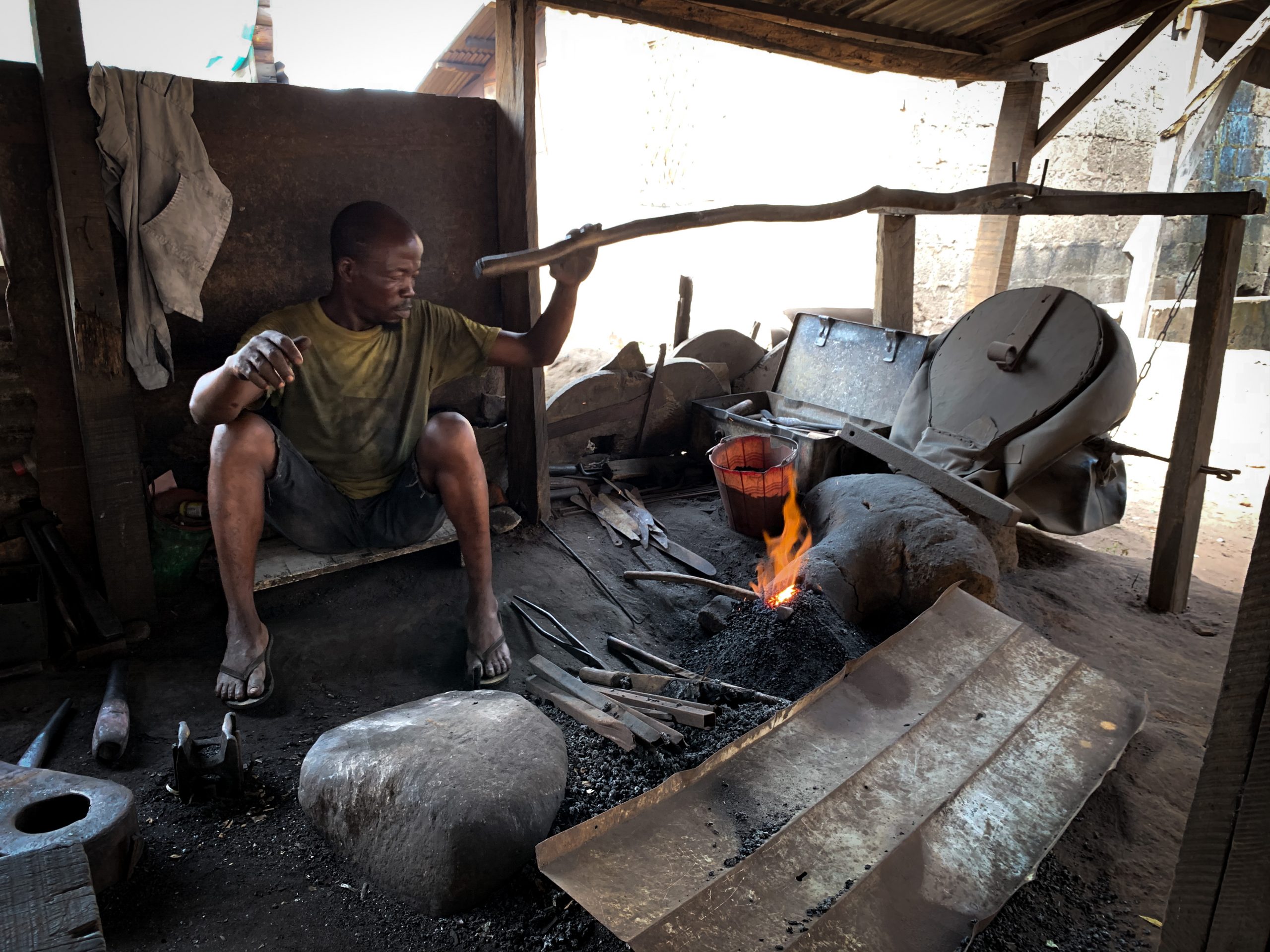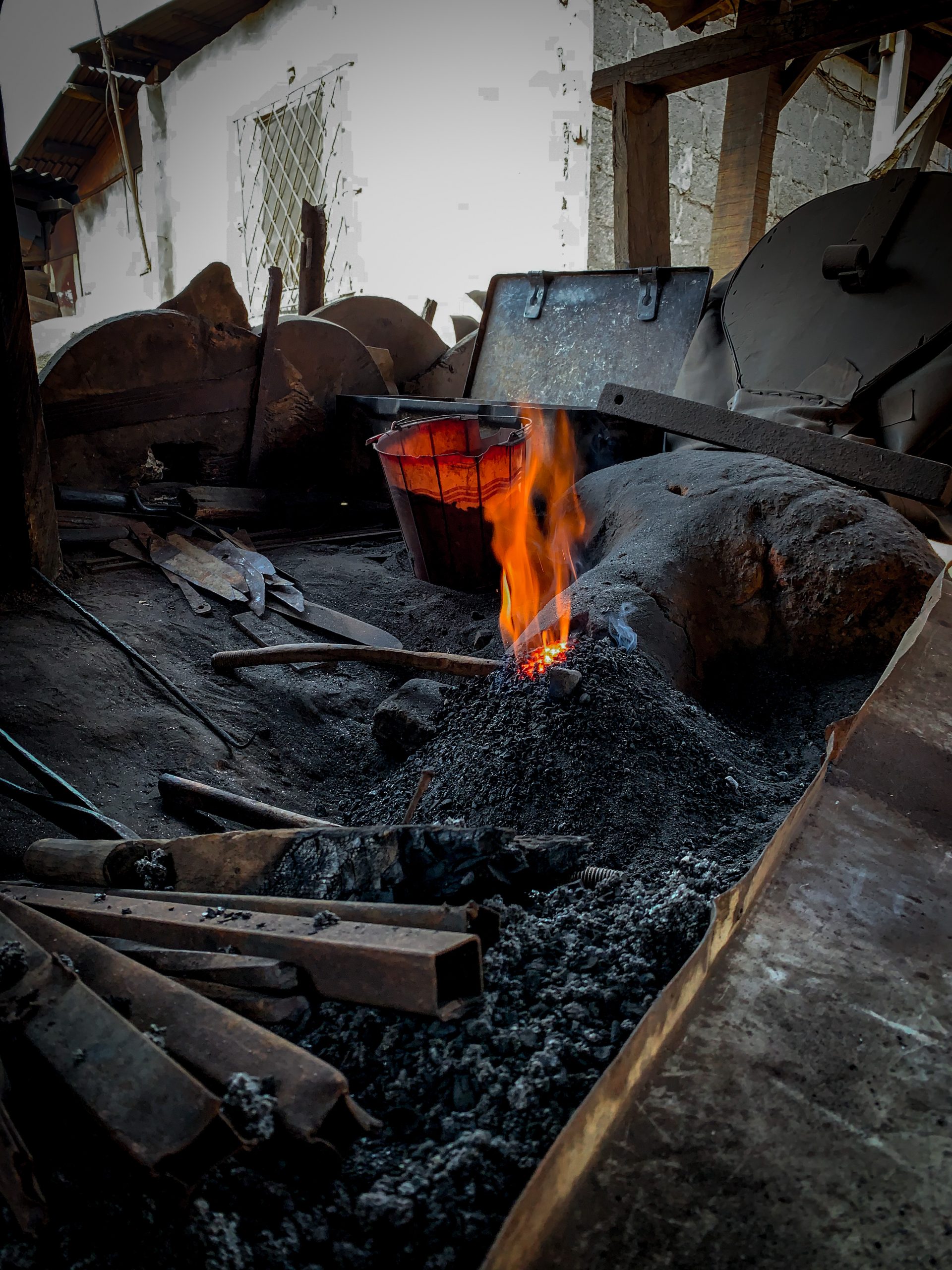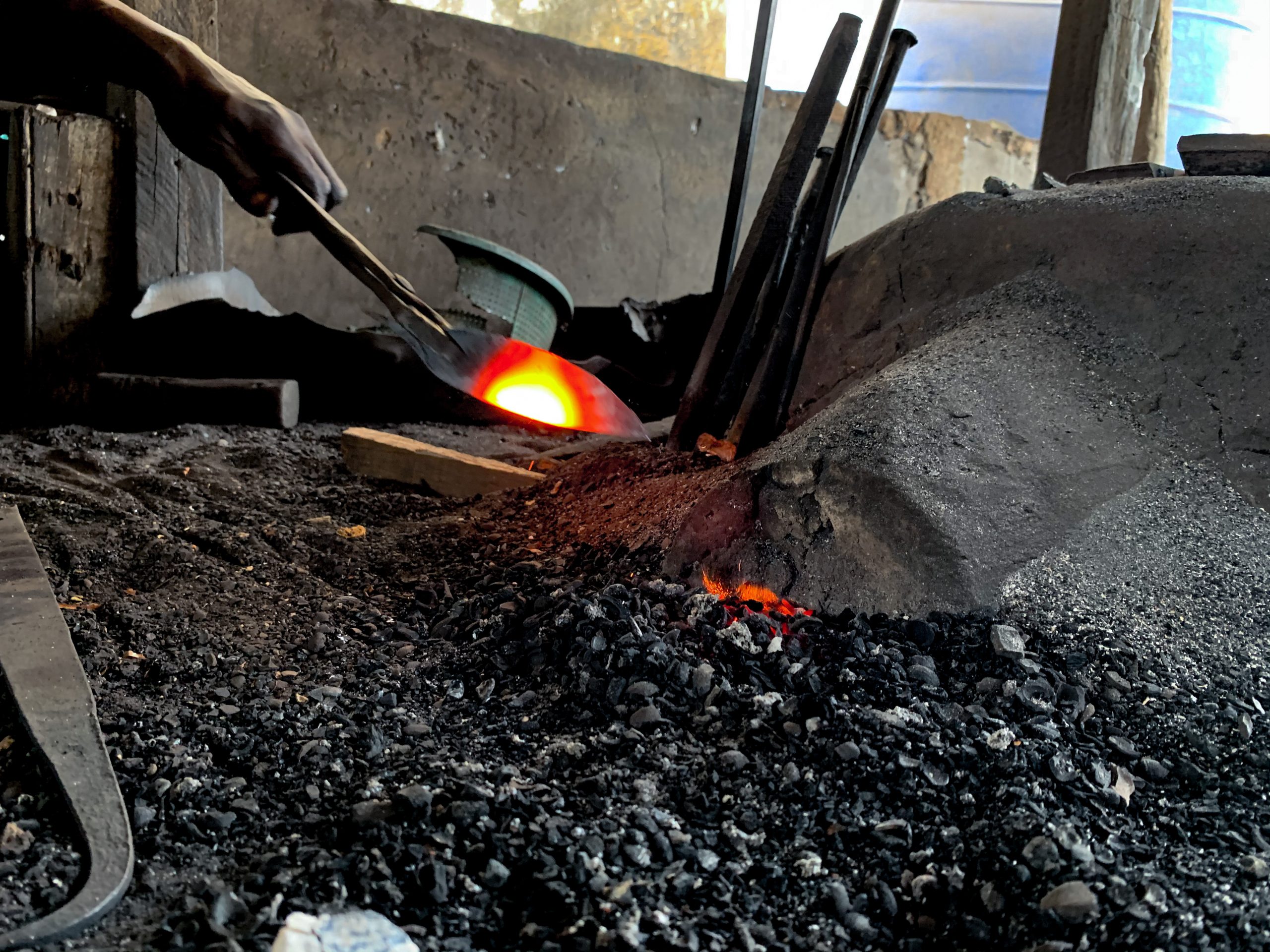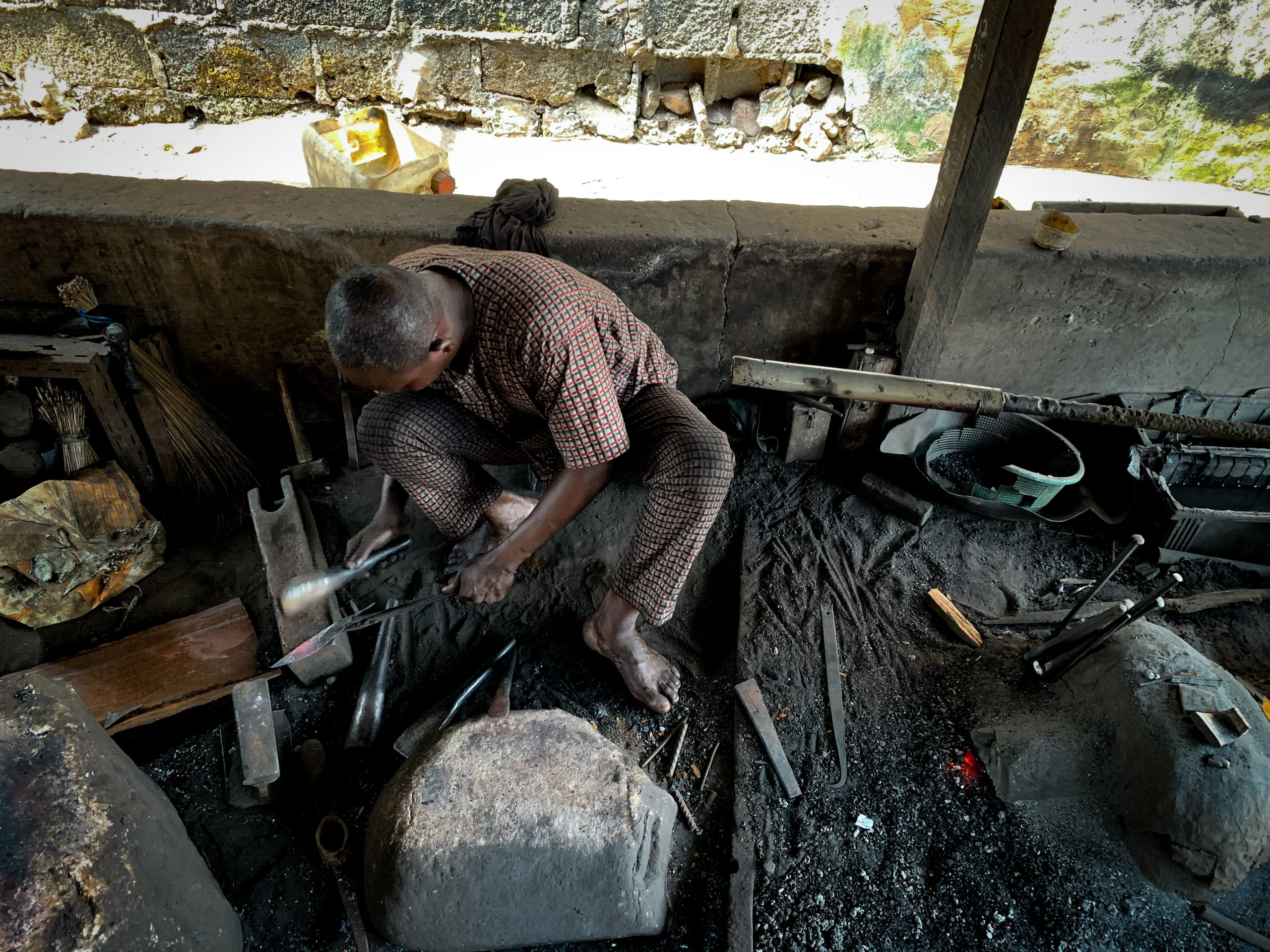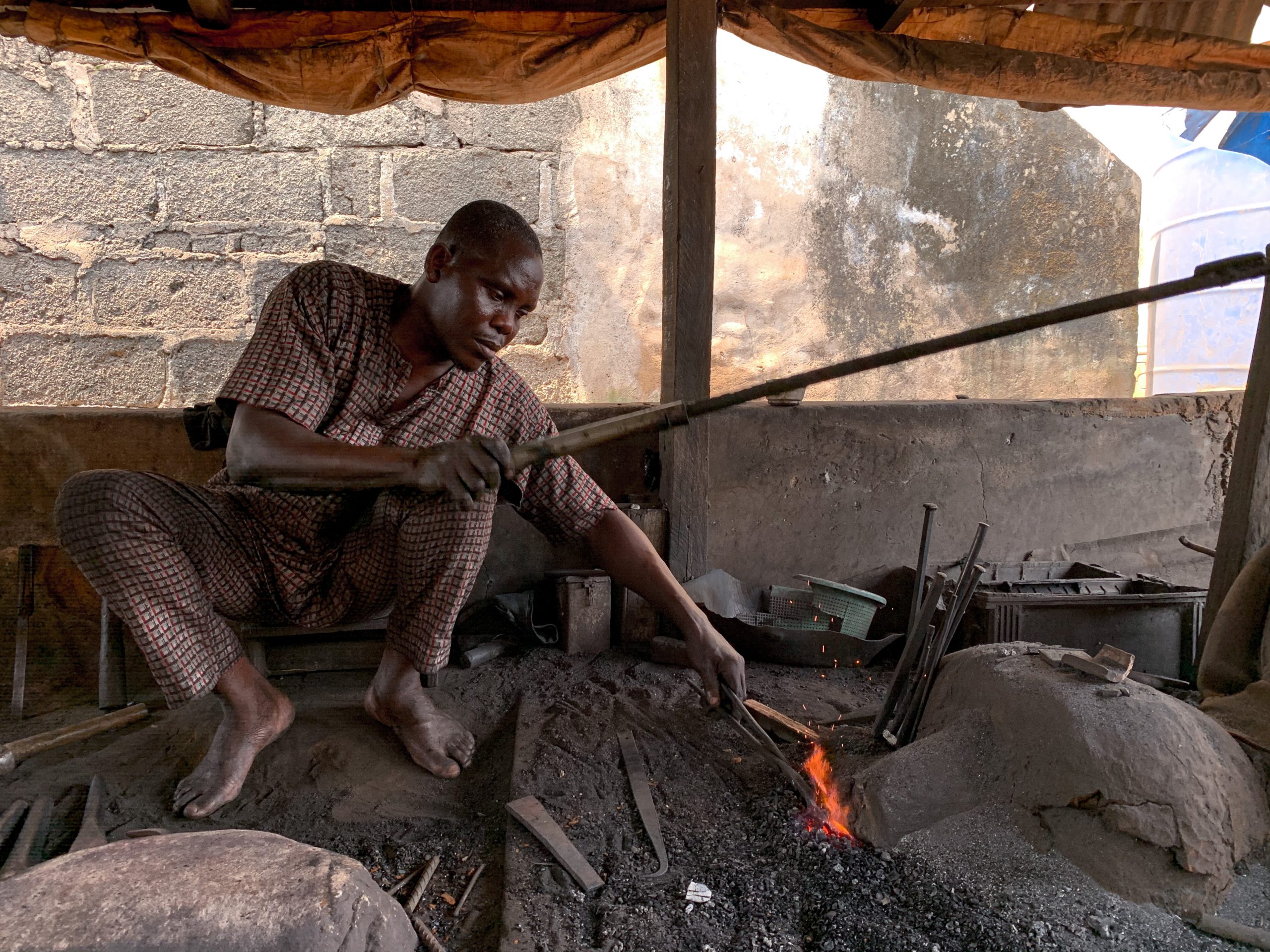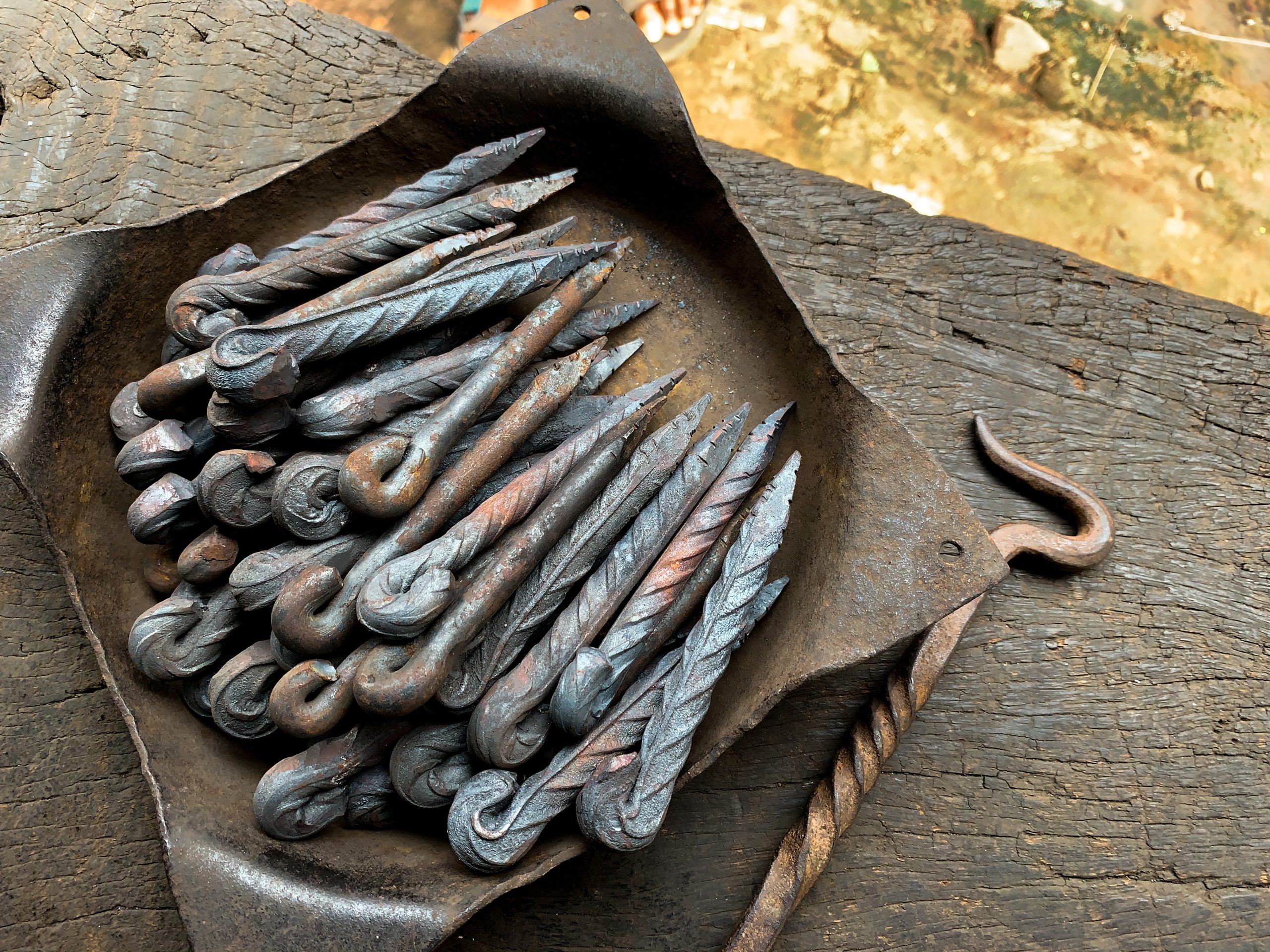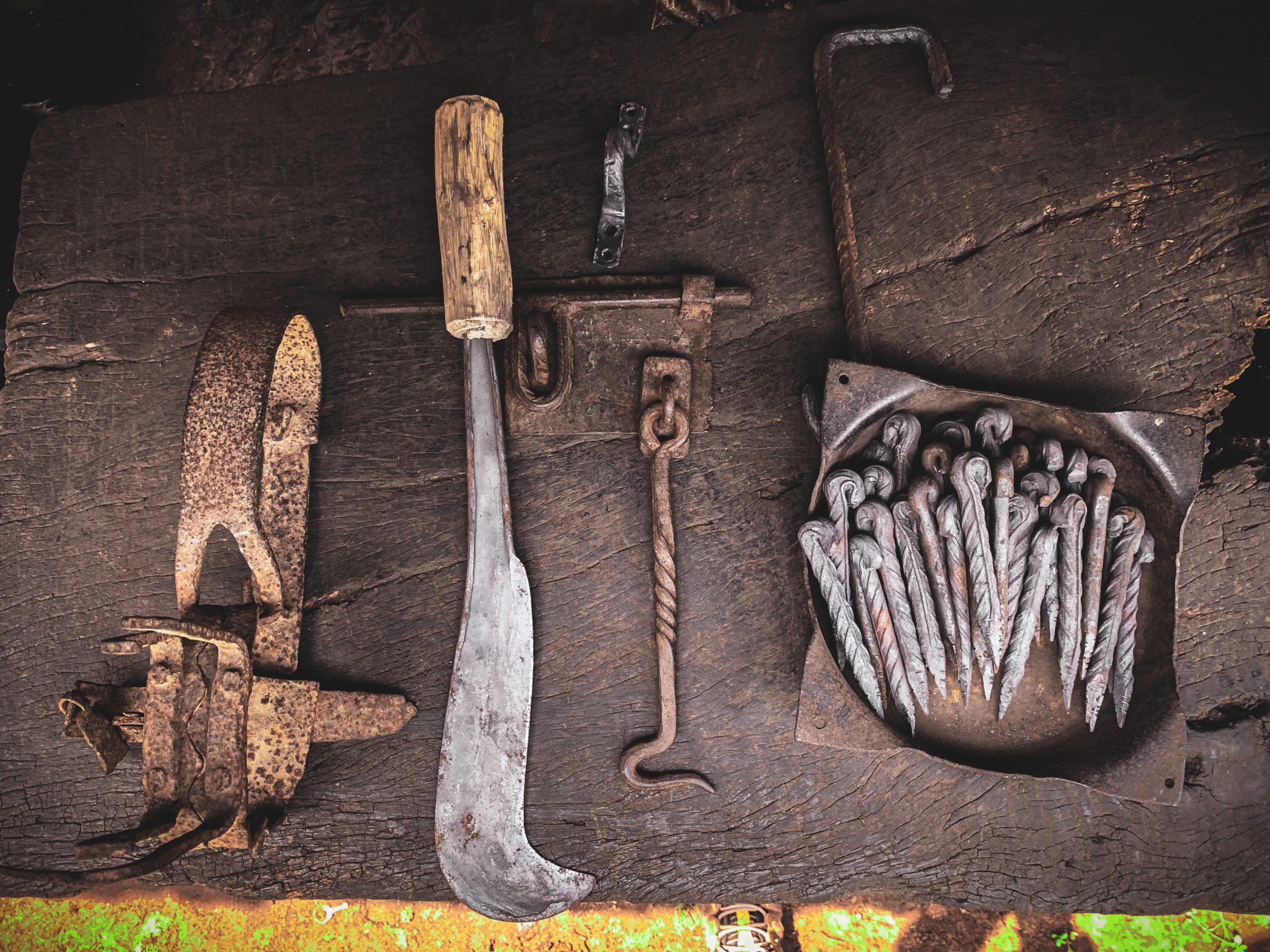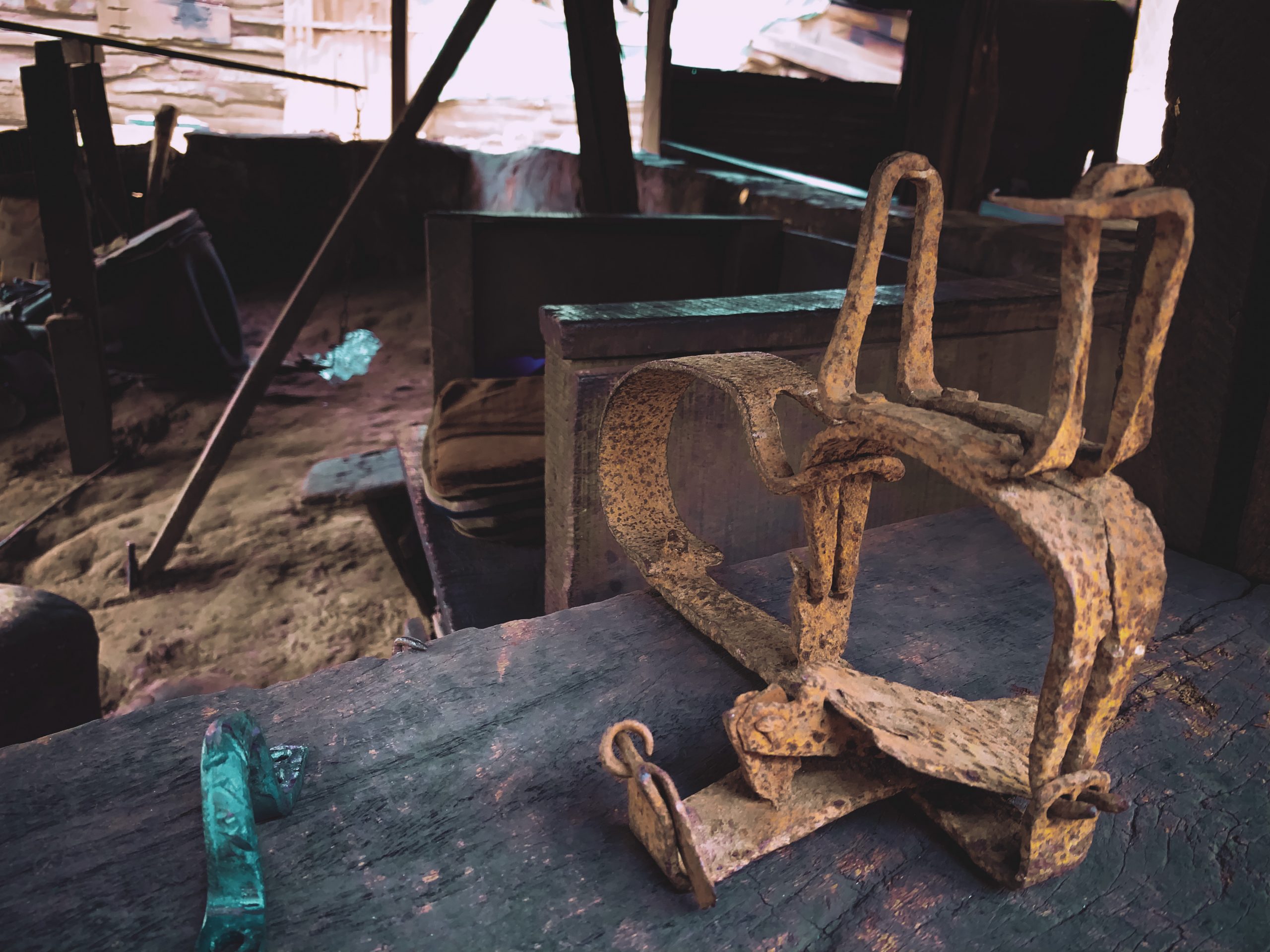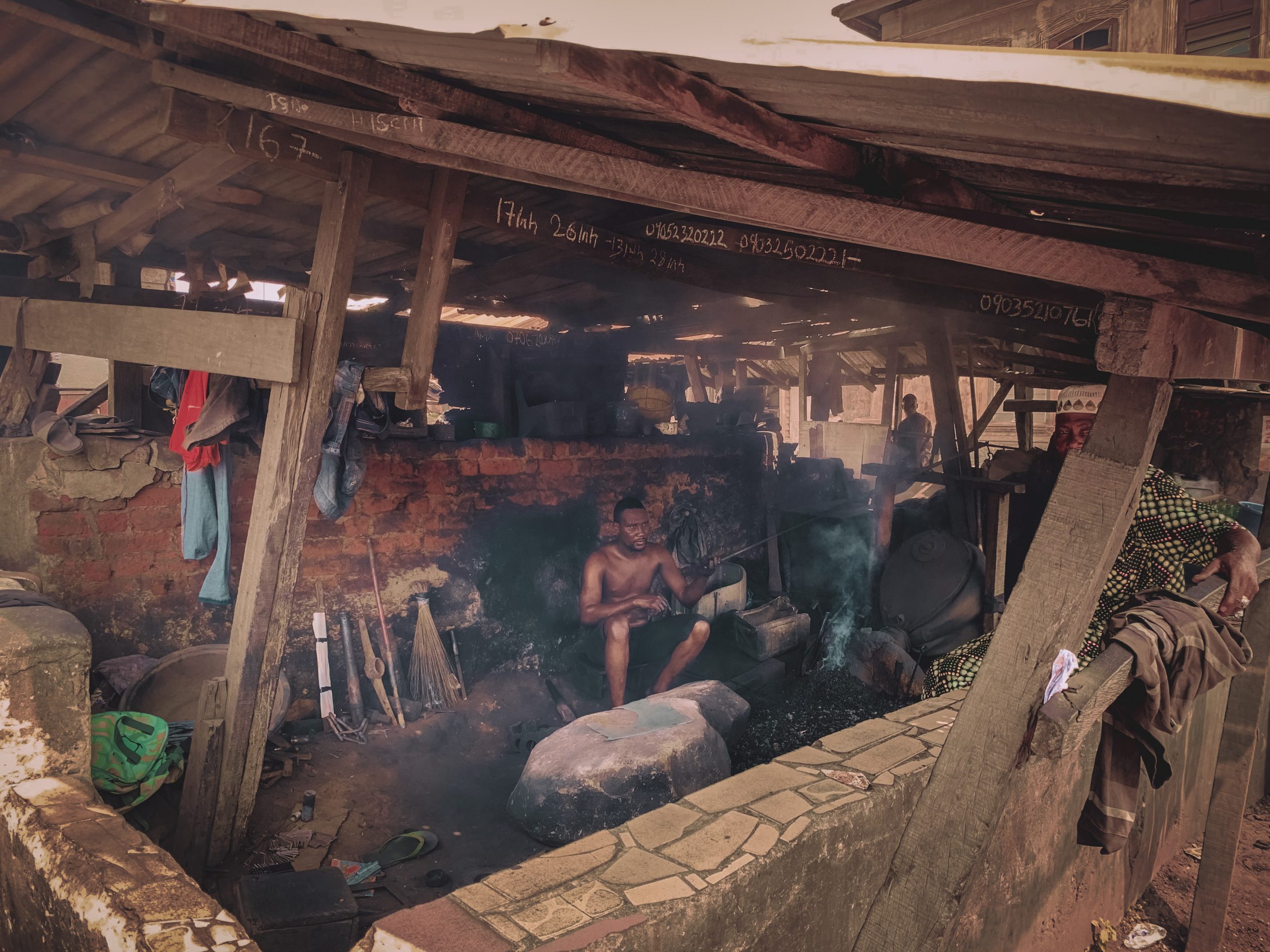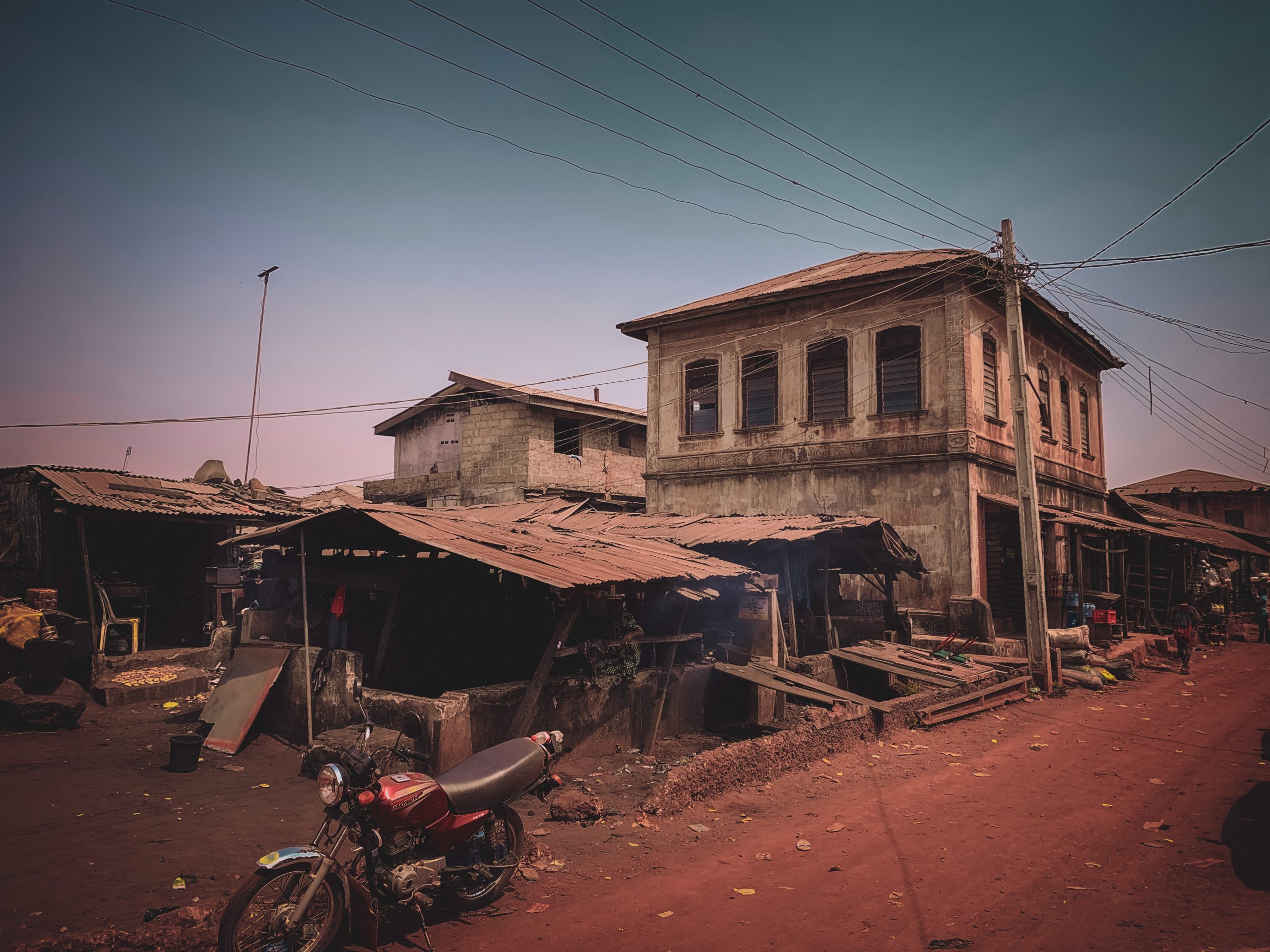Agbede (Blacksmith)
Here is a craft that transcends time – the ancient magical skills of the blacksmith are beyond the clanging of hammers and the billowing smoke, the blacksmith breathes life into metal, weaving a narrative of strength, creativity, and resilience.
Aroye ooo!!! Laaki won nile aro.
That’s how they greet at the blacksmith workshop and they will reply
Ogun agbe e oo, irunmole atunwa’ese oo.
This is a centuries blacksmith workshop that has been in existence for more than 200 years, located at ldele, Ijebu ode, Ogun state.
The Man in charge/command made it known that he was the fourth grandson born into the blacksmith job. He said the last deceased which is his father died at the age of 78 years.
The current man in charge narrating this story is also aged, with a son of more than 30 years.
In the blacksmith workshop, there are a lot of blacksmiths and they are all partitioned up to 7 workshops it include a shrine “Ogun (God of Iron)”. They made it known that a confirmed blacksmith workshop must have an Ogun Shrine.
I don’t know why but that may be a story for another day.
There are a lot of dos and don’t rules guiding the blacksmith for the safety and progress of their work.
Ancient extensive rules that matter most for progress at the Yoruba blacksmith workshop are as follows
*Must have an Ogun shrine
*Must not eat crickets(Ire )
*Must not eat snake(Ejo )
*Must not wore a footwear(Bata )
*Sitting on a stone(Okuta) is prohibited
Eating cricket and snake breaks local blacksmith tools, so they have been taking precautions for centuries.
They don’t use much tools than Long pincer (Emu), Strecher big and small (Owu nla ati Omo owu), straighteners big and small (Omiden), Fire througher (Iwona), Air blower(Ewiri), Palm cannel (Ekuro) but Ijebu people call it ‘irwen’ while the blacksmith call it ‘ekusen’.
The blacksmith produces several utilities that we see also every day like farm tools, traps, door in-gees, fan hangers, ancient bells, and more… Within a few minutes, the man produced a mini knife to see how their tools work.
Thus, while rooted in age-old traditions, modern blacksmiths are warlocks of innovation. From traditional horseshoes to contemporary sculptures, these craftsmen embrace a fusion of ancient techniques and cutting-edge technologies. The forge becomes a crucible of experimentation, where the blacksmith’s imagination is the only limit to what can be wrought from the elemental embrace of fire and metal.
A blacksmith’s workshop is a treasured place of tools, each one meticulously crafted and imbued with a story. Hammers, knives, cutlass, etc become extensions of the artisan’s soul, guiding the metal into its final form. In this type of craft, iron is not just metals; they are the language through which the blacksmith speaks to the elemental forces of creation.
